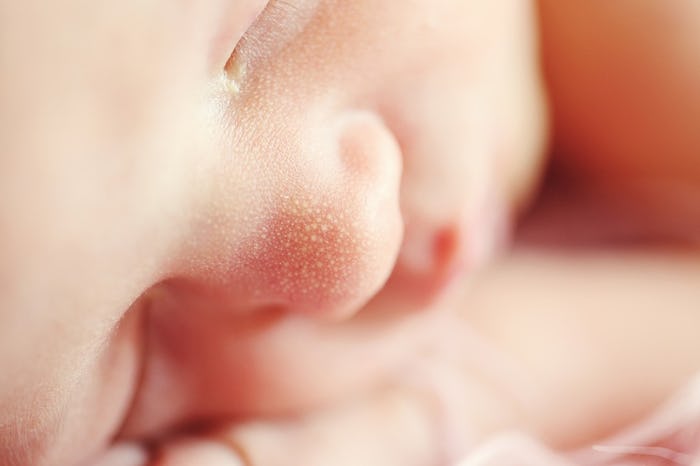You've probably heard how important sleep can be for a baby when it comes to their development and behavior, but what you may not realize is what happens to your baby's body when they sleep is just as important as how often they're snoozing.
According to GMA News Online, amongst the contribution to growth and general development, sleep is also a key element to baby's development of the central nervous system (CNS). "[Sound sleep] is associated with more positive daytime behavior, mood, and temperament, and better physical functioning," shared Sleep Expert Alicia Estiller with GMA News Online, and the research highlights its importance to babies' CNS specifically. The process that begins happening to a baby's body when he sleeps is first the state of recharging to undergo these developments, according to Estiller.
Babies have different sleep states referred to as "active" (light) and "quiet," shared Parenting science. A baby's final sleep state is called "deep sleep." Active sleep is what's often referred to as "rapid eye movement," or REM. This is the state of sleep when you may see your baby's eyes flutter, body twitch, or facial expressions happening, according to GMA News Online, and during this state, the baby's body is very relaxed while the mind and brain are alert and active.
Between active sleep and deep sleep is the "quiet sleep stage," according to Baby Center. It's during this stage that your baby may begin to experience dreams.
According to Parenting Science, roughly halfway through a baby's sleep cycle they go from active sleep to deep sleep. What happens to the baby's body during deep sleep is a slower, more rhythmic type of breathing with little to no movement. Babies often sleep much heavier and are less likely to awake in this state of sleep.
Your baby's body will go through these cycles generally around five times a night, according to Baby Center. Your baby's sleep cycle, at first, is between 50 to 60 minutes long, but once a baby hits 3 months old, their cycles go up to around one hour and 30 minutes each — much like an adult's.
In a nutshell, these cycles are what your baby's body goes through when they sleep, but Parenting Science also shared that baby's sleep patterns and body responses can be slightly different for each individual baby. It's also important to note that normal milestones can affect your baby's body and reaction to sleep. Milestones like circadian rhythms, separation anxiety, teething, and new motor skills (learning to crawl, walk, etc.) often alter or shift these sleep cycles, according to Parenting Science.
